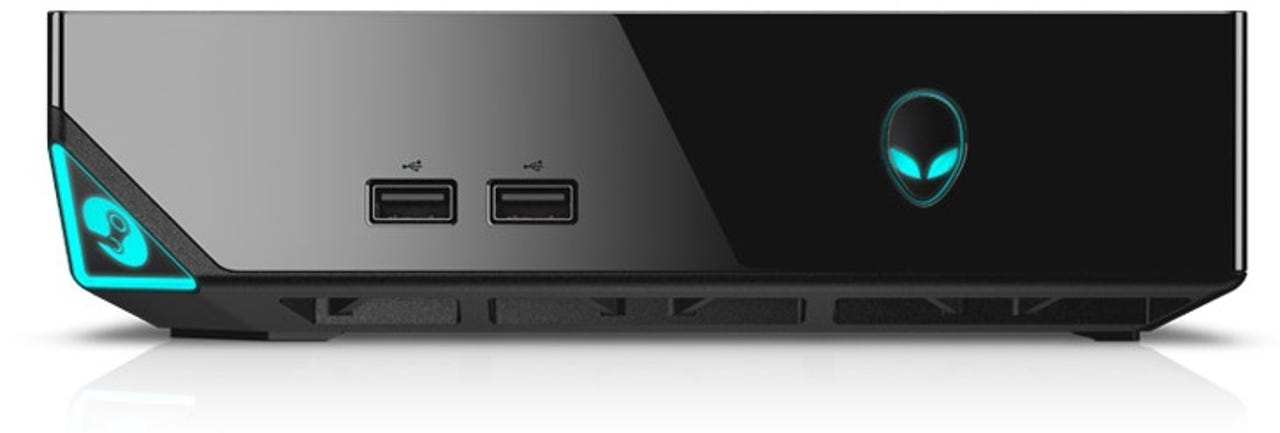Developer claims Linux forced Microsoft to up its Windows game support

In 2012, Gabe Newell, CEO of the major Steam game platform company Valve, snarled "Windows 8 is a catastrophe for everyone in the PC space." His solution? Bring Steam to Linux.

Alienware's Steam Machine and its Linux SteamOS operating system hasn't been that successful, but its mere existence made Microsoft take gaming more seriously in Windows 10.
What drove him to that decision was the gaming bottom line: Performance. Valve's developers found that an early Linux version runs faster than the Windows version thanks to the "underlying efficiency of the [Linux] kernel and OpenGL".
CES 2017
Newell did more than just start porting the Steam platform and games to Linux. He started working on his own gaming-specific, Debian-based Linux distribution, SteamOS, and gaming PCs, Steam Machines, to support it.
That was the plan. The reality was it took Valve and its partners, PC OEMs such as Alienware, Falcon Northwest, and Gigabyte, far longer than expected to ship the Linux-powered gaming PCs. It wasn't until 2014 that the first two Steam Machines shipped.
According to Frank Azor, co-founder of Alienware, Dell's gaming division and an early Steam Machine supporter, in a PC Gamer interview, "The catalyst for the Steam Machine initiative was really around what Microsoft's decisions were with Windows 8, and if you remember that operating system, it really stepped away from gamers in a big way. We were concerned as an industry that we were going to lose PC gamers on the Windows platform to any other platform that was out there, whether it was console, Mac OS X, Android."
However, "Microsoft learned a very valuable lesson -- a lot of valuable lessons -- with Windows 8 and tried to correct those with Windows 10. It's more gamer focused, I would say. Every subsequent release has focused on gamers. Although their execution isn't perfect, it's definitely improved compared to Windows 8."
That, combined with the delays, left far less market room for Steam Machines. Ironically, according to Rich Geldreich, former Valve programmer and co-owner of Binomial, a video graphics startup, Valve's support for Linux gaming forced Microsoft to up its "game".
In his blog, Geidreich wrote, after Valve revealed Linux supported games better "some very senior developers from Microsoft came by for a discreet visit".
"They loved our post, because it lit a fire underneath Microsoft's executives to get their act together and keep supporting Direct3D development. (Remember, at this point it was years since the last DirectX SDK release. The DirectX team was on life support.) Linux is obviously extremely influential.
"It's perhaps hard to believe, but the Steam Linux effort made a significant impact inside of multiple corporations. It was a surprisingly influential project. Valve being deeply involved with Linux also gives the company a 'worse case scenario' hedge vs. Microsoft. It's like a club held over MS's heads."
Steam for Linux and Steam Machines are still shipping. Valve continues to update Steam for Linux on the same pace as its does its Windows and macOS software. The latest version, SteamOS 2.98, appeared in early December 2016.
That said, early SteamOS fans are running out of patience with the platform. In a recent Linux Steam community post, a player declared SteamOS DOA. That's because "Valve half-assed SteamOS from the beginning. It is little more than Debian with a custom X session that boots into the SteamOS compositor."
Other readers, while not as down on the platform as the author was, agreed that the SteamOS still has "huge potential". But, without more support from Valve, they see little hope of SteamOS becoming all that it can be.
Still, while Steam Machines and SteamOS haven't taken off, Linux can take some credit for improving Windows gaming.
Related Stories: